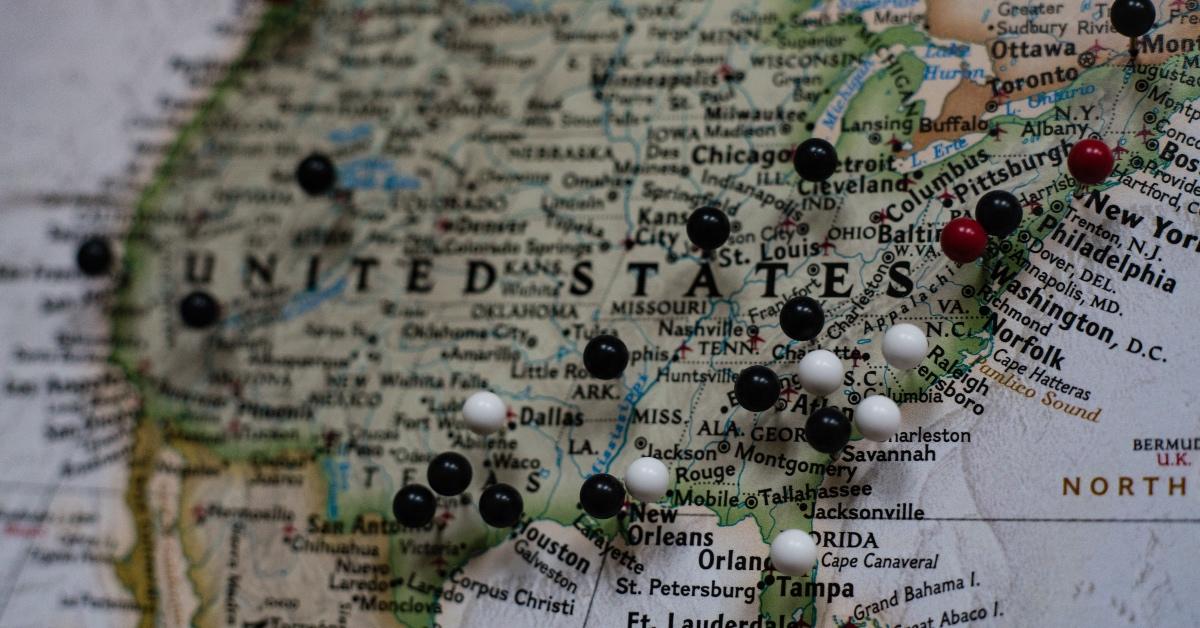Certain States Criminalize Abortions — And Impose Harsh Punishments
Several states have abortion bans in place that ultimately make the procedure illegal and worthy of criminal punishments. In some states, getting an abortion will lead to being arrested.
Aug. 10 2022, Published 10:22 p.m. ET

After the Supreme Court decided to overturn Roe v. Wade, it gave each state the power to decide how it wanted to handle abortions. While some have made it clear they will continue to uphold a woman’s reproductive rights, others keep pushing to evoke it.
Although laws are continuously changing, some states have criminalized abortions. Keep reading to learn about the specific states and what criminalization means.
Certain states have issued abortion bans that make it illegal to have the procedure performed.

Alabama
Alabama’s 2019 full abortion ban law went into effect on June 24, following the Supreme Court ruling, according to The Washington Post. Alabama only allows abortion when the life of the mother is in danger.
Arizona
Arizona had an abortion ban in effect prior to the overturning of Roe v. Wade. Arizona’s Republican attorney general announced that he plans to get the injunction removed from the 1901 law so that it can be enforced.
Arkansas
Arkansas had a trigger ban in place that took effect following the Supreme Court’s ruling on June 24. Abortions can only be performed when it is necessary to save the woman’s life.
Georgia
Georgia’s 2019 abortion ban law was reinstated on July 20, according to The Washington Post. The law only allows for abortions to be performed within six weeks after the LMP (last menstrual period).
Idaho
The Idaho abortion ban takes effect on August 25, 2022.
Indiana
On Aug. 5, Indiana passed an abortion law that makes the procedure illegal unless one of the following circumstances exists: rape, incest, or lethal fetal anomaly. The law takes effect on September 15, 2022.
Kentucky
Currently, Kentucky bans abortions from conception.
Louisiana
Louisiana’s trigger law bans abortions, listing lethal fetal anomalies as the only exception.
Mississippi
Abortions are considered illegal in Mississippi unless they're performed before six weeks and in the case of rape, incest, or lethal fetal anomaly.
Missouri
Missouri’s trigger ban took effect following the June 24 ruling, with few exceptions.
Ohio
Ohio currently has a six-week ban in place, meaning abortions can only be performed before cardiac activity has been detected.
Oklahoma
Oklahoma had an abortion ban in effect prior to the June 24 ruling along with a trigger ban following it. The law makes it illegal to receive an abortion before six weeks. NPR says after that, it's considered a crime punishable by up to 10 years in prison.
South Carolina
South Carolina considers abortion to be a criminal act if it's performed after six weeks. The law identifies the following as exceptions to the ban: rape, incest, and lethal fetal anomaly.
South Dakota
It's illegal to receive an abortion in South Dakota thanks to the state's trigger law that took effect following the June 24 ruling. The only exception South Dakota recognizes is a lethal fetal anomaly, which means pregnancy can be terminated if a healthcare provider determines having the child puts the mother at risk of death.
Tennessee
Tennessee has an abortion ban in place that only permits the procedure before six weeks.
Texas
Abortions are currently illegal in Texas, with no exceptions.
Utah
Utah had a trigger ban in place that took effect following the June 24 ruling. However, the law, which bans nearly all abortions except for those that stem from rape, incest, or lethal fetal anomaly, was blocked by a state court judge on June 27, according to The Washington Post.
Until the trigger law takes effect, abortions can be performed in Utah up until 18 weeks. After that, the procedure can't be performed.
West Virginia
Although a judge blocked West Virginia’s 150-year abortion ban, allowing some clinics to continue with the procedure up until 22 weeks, it isn't clear how long the temporary block will hold. If the temporary block gets lifted, receiving an abortion would be considered a felony.
Wisconsin
Because Wisconsin’s laws are a bit unclear, healthcare providers have paused performing abortions. While the state did have a trigger law in place that bans the procedure, the Guttmacher Institute says abortions are legal up until 22 weeks since the LMP.
Both North Dakota and Wyoming have trigger laws in place that ban nearly all abortions. However, the laws were blocked by federal judges, essentially putting them on pause.
Seek advice from a professional before getting an abortion.
Because some states are halting abortion procedures until the law can be further clarified, it’s a good idea to consult a lawyer or healthcare facility to find out if getting an abortion is a violation of criminal law in your state.
